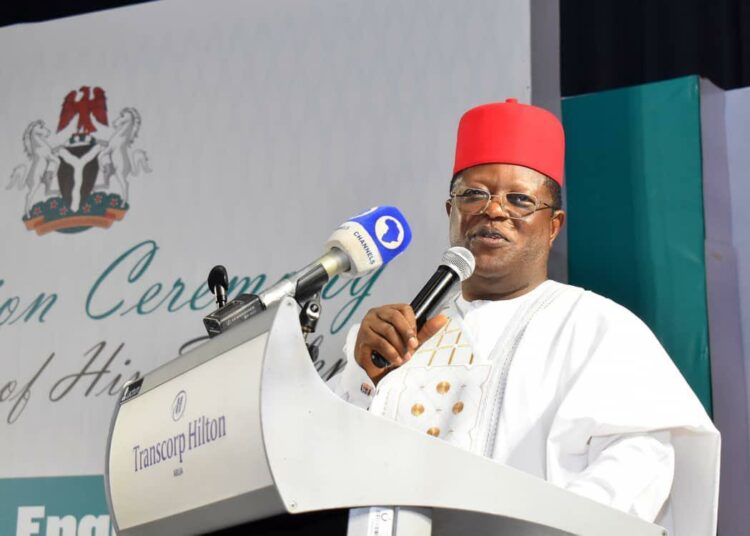The federal government has approved a series of high-profile road projects, including N740 billion for the Berger section of the Abuja-Kano road, as part of the administration’s infrastructure overhaul.
The minister of Works, Dave Umahi, disclosed this to State House correspondents after the federal executive council meeting presided over by President Bola Tinubu at the Presidential Villa.
He clarified the government’s approach to managing the extensive backlog of infrastructure projects.
Among the key decisions, the FEC announced that the Shagamu-Benin road is undergoing a critical rehabilitation, while procurement processes are being finalized for its full reconstruction using reinforced concrete pavement.
He said the Abuja-Kano road, previously slated for a tax credit arrangement, will now be procured without such a provision, with the 162-kilometre Berger section already approved for N740 billion.
Umahi highlighted several other projects, including the commencement of construction on the Sokoto-Badagry road, with the Sokoto section to be flagged off imminently.
Additionally, he said works on the Oyo-Ogbomosho road, a project stalled for 18 years, will resume, and the Makurdi-Katsina-Ala road will undergo significant repairs.
According to him, FEC also tackled the inherited debt profile of N1.6 trillion tied to 2,604 projects, with a total contract value of N13 trillion.
To manage the backlog, the Ministry of Works has initiated a phased approach to project completion based on available funding.
Key examples include the phasing of the Biu-Kangiwa-Kamba-Kaya Niger Republic road in Kebbi State, the Yola-Hong-Mubi road in Adamawa State, and the Kachako-Dambazua road in Kano State.
The council further approved advanced payment mechanisms to combat inflation and rising costs driven by fluctuating exchange rates and petroleum prices.
“And finally, we presented a memo to FEC that where there is proof of funds, there are available funds, the Procurement Act allows MDAs to pay a maximum of 30 per cent advance payments. And let me emphasise that this is an advanced payment. When you read the law, it says it may be paid.
“And so when people are giving contracts and they don’t mobilize, and they said, I’ve not paid mobilization, it is not legally binding, because the word says may pay. And so some people turn it into shall pay. So no, it’s ‘may pay’.
So where we have funds, and they will have a valuable fund beyond this 30 per cent so what we are, you know, we requested from FEC is approved, that we first pay 30 per cent which is the Procurement Act, and not more, and then when the contractor has started work, and to the satisfaction of the Ministry of Works, we should be allowed to pay additional funds.
“Yes, the law allows us to pay in terms of materials on site. But we are asking beyond that, what is the essence of this? Is to mitigate a lot of fluctuation and inflation, because we have a lot of indices that affect the ministry of works like the petroleum. It affects it.
“The dollar exchange rate also affects so we are doing everything to manage the resources within the available funds so that we mitigate inflation,” he added .





